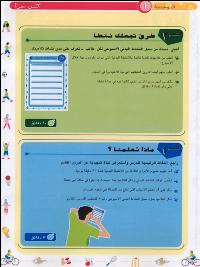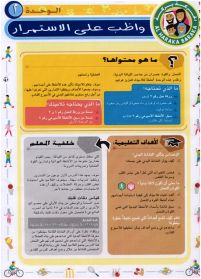
 Aim: The Al haraka baraka (movement is blessing) is a physical activity promotional programme intended to complement the regular school physical education (PE) programme for 6–12 year olds.
Aim: The Al haraka baraka (movement is blessing) is a physical activity promotional programme intended to complement the regular school physical education (PE) programme for 6–12 year olds.
Location: Riyadh is an urban city and the capital of Saudi Arabia. This metropolitan city has a population of over 5 million people.
Duration: The programme commenced in the school year 2004–2005 and was implemented for a 2-year period.
Lead agency: King Saud University.
Partners: Arab Centre for Nutrition.
Key focus: The main aim of the programme was to provide knowledge and skills for students and their teachers on physical activity and health.
Key components for physical activity
- Written resources, a website, and a CD for children and adolescents, their teachers, and families, on the benefits of physical activity and the harmful effects of sedentary behaviours, as well as instructions on how to be active.
- Resources included a parents’ guide, teachers’ guide, and resources for the students themselves.
- The resources focus on three main types of physical activity (enhancing aerobic fitness, strength, and flexibility), as well as avoiding sedentary activities.
- The materials were administered during regular PE classes in schools (at least twice a week) for a 4 to 6 week period.
Evaluation
A pilot study was undertaken towards the end of the first academic year of implementation. The evaluation aimed to assess the suitability of the programme and to gain feedback from teachers, students and the students’ families.
Key findings
- The programme was well accepted by students, students’ families, teachers and schools.
- The programme did not elicit any significant changes in short term physical activity levels of the pupils, however the results of the evaluation indicated that the children became more aware of the importance of physical activity and responded positively to the programme materials.
Key factors contributing to the success of the project
- The project was appealing to both students and teachers because it was different from the regular school PE programme.
- The programme used existing school facilities.
- Families of the students were also involved.
Challenges
- Teachers needed training to administer the programme.
- The programme was delivered over a 4–6 week period. However, implementation over a longer period may be necessary to maximise its effectiveness.
- No funding was available to continue to deliver the programme beyond the initial 2-year period.








